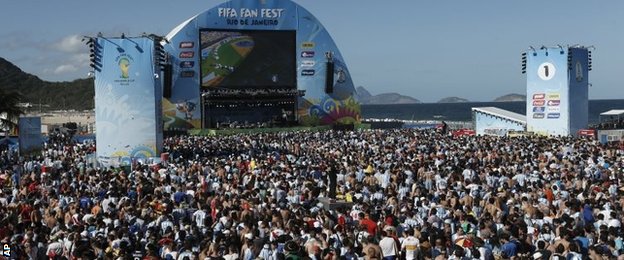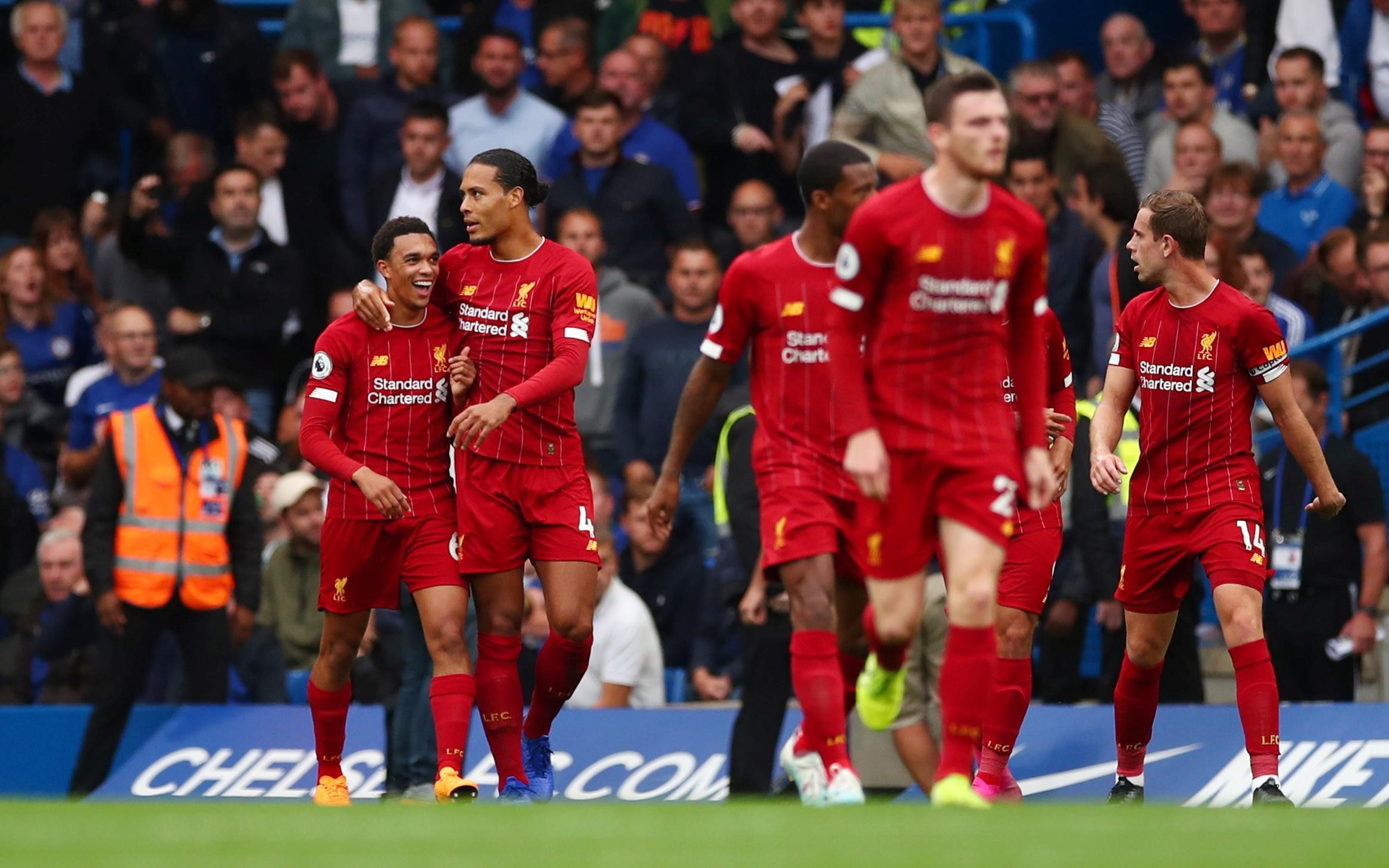
The supporters of Argentina may have taken over Rio de Janeiro but in the end, the World Cup belonged to Germany.
For the first time all day the fans of the Albiceleste were silenced when Mario Gotze’s brilliant volley late in extra time added the fourth star to the shirt of Germany.

By this stage tension had long eclipsed exuberance and endeavour, and the celebrations that followed were laced with relief as much as delight.
They belonged, of course, to the supporters of the eventual champions but also, tellingly, just about every neutral inside the Maracana – and certainly every Brazilian.
Indeed a feature of the match was the byplay between fans of Argentina and Brazil, to the extent that the German supporters inside the stadium were at times almost bystanders in a final that their team won.

Those in yellow took every opportunity to boo Argentine songs and engage in bursts of “Ole” every time Germany enjoyed a sustained spell of pressure.
The delight was clear and gleeful when Argentina striker Gonzalo Higuain eventually realised his effort after 30 minutes had been ruled out for offside. Even more so when a tired and beaten Lionel Messi smashed his free-kick way over Germany keeper Manuel Neuer’s crossbar with seconds of the World Cup remaining.
By the time Philipp Lahm lifted the trophy, some (but not many) Argentina supporters had started to slip out into the Rio night. If they were looking for comfort from compatriots they would not have had to travel far.
- Chamisa under fire over US$120K donation
- Mavhunga puts DeMbare into Chibuku quarterfinals
- Pension funds bet on Cabora Bassa oilfields
- Councils defy govt fire tender directive
Keep Reading

In some ways it felt as though there were two cup finals played out on Sunday.
The first took place inside the Maracana, its predominantly blue and white seats so well suited to the colours of the Albiceleste that their fans almost melted into them, while the yellow seats down towards the front were little more than a painful reminder to Brazilian supporters of their team’s absence.
Brazil’s team coach had proclaimed that ‘the sixth win was coming’ but instead of extinguishing the Maracanazzo, the ghost of their 1950 final defeat, their semi-final humiliation instead left their fans with a new phrase to define another unwanted humiliation – the Mineiratzen.
What they said: Spain midfielder Xabi Alonso: Congratulations to Germany! The best team in the tournament won. Well done Sami and Mesut Ozil, enjoy it! Nigeria striker Peter Odemwingie: It was a fantastic World Cup! Obrigado Brazil! England striker Daniel Sturridge: Not even going to lie, I’m jealous it’s not me. Fuel for the fire I guess. One day I hope to help England win something. That’s the dream. Indian cricketer Yuvraj Singh: Sorry to Argentina fans! Unlucky to miss two goals. Congratulations to Germany on their fourth World Cup win! Emotions brings back 2011 World Cup memories. American basketball player Kobe Bryant: Congrats Germany, well deserved! Amazing goal to win the World Cup. Australian actor Hugh Jackman: Congratulations to World Cup 2014 champions Germany! Well deserved.There were 74,738 inside the stadium on Sunday but the large exclusion zone around the Maracana meant that anyone without a ticket could not get anywhere near.
This was the preserve of the fortunate few fans of either side who had managed to get hold of a ticket – with one honeymooning Argentine couple explaining that they had paid $4,000 for the privilege. Twenty-eight years after their nation’s last World Cup victory, they decided that they wanted their slice of history.
And then there were the relatively wealthy and the elite, with numerous heads of state, dignitaries and VIPs enjoying Colombia pop star Shakira performing as part of the closing ceremony that preceded the final.
With the cheapest tickets costing $440 for the general international public (£257) and 330 Reals (£87) for Brazilians, this was not an occasion for those down on their luck.
It perhaps explains why “Penta Campeao” (“five times champions”) has been just about the only chant heard by Brazil fans during the World Cup. Those that know the songs that are such a feature of league matches in Brazil have been priced out.

World Cup 2014: Germany 1-0 Argentina (aet) highlights
A lack of songs to sing has not been a problem for the Argentines.
Brazilians heading to the match on the metro had to listen to the chant that has reverberated around the country for the last month, with Argentine fans asking how it feels to be bossed around in your own home.
Sung to the tune of Creedence Clearwater Revival’s Bad Moon Rising, it has proved to be so popular back in Argentina that it has replaced jingles on certain radio stations.
It could be heard all over Rio on Sunday as an estimated 100,000 Argentines descended on the city, arriving on the Copacabana beach like waves rolling in from the ocean.
Many had little money and even less hope of securing a ticket. But they were here because they wanted to be a part of something.
And it was here that the other final took place, in the streets and on the beaches of Rio, the one beamed back from the stadium to the masses of the ticketless.

Tobias, 26, had been travelling around Brazil for 24 days with his three friends, sleeping in a car.
“Sometimes we all wake up in a bad mood, tired, aching and with rain bouncing off the roof,” he said. “We want to kill each other, but when the sun shines and we reach the final, the puzzle makes sense.”
He looked anything like the lawyer that he claimed to be, his Argentina top showing signs of wear, his stubble heavy as he sat on the pavement by the Copacabana, the boot of his car open in front of him, a half-drunk can of beer keeping him company.
Argentines wandered up and down the front in the hours before the final, many wearing just football shirts and shorts, footwear deemed unnecessary.

Everywhere they sang and cheered on their team. Many of those who had flown had been forced to do so via Curitiba to the south or Montevideo in Uruguay, flights out of Buenos Aires to Rio being a precious luxury.
But the sheer number of cars and campervans (and a solitary ambulance with Argentine plates) parked by the Copacabana told their own story. One family had travelled from Tierro del Fuego in the south of Argentina, a six-day journey of 7,000km. They had no hope of buying tickets and did not care.
There was something in this mass pilgrimage that spoke of the soul of football, of the passion that it arises and the sense of belonging and identity that it provides.
So many had been rolling into Rio for so long that the authorities had moved them off the beachfront and over to the Sambadrome, the huge avenue lined with stands on either side that is associated with the annual carnival.

Instead of looking down on the rhythmic glamour of Samba dancers, the view from the huge white stands was like some kind of city centre Glastonbury, campervans and tents crammed into every available space, the smoke of the BBQ drifting across the scene.
The Fan Fest on Copacabana beach was throbbing five hours before the final, its inhabitants broiling in the midday sun, while many others had already started to seek out alternative venues to watch the match at the makeshift bars and restaurants nearby. By kick-off so many stood on the beach outside the Fan Fest that the advancing tide was a constant menace.
Occasionally a cluster of Germany fans could be spotted, a relative novelty among the light blue and white.

Nonetheless, all of Brazil was on their side. Anything to avoid listening to the tauntings of Diego Maradona on television, suggesting as he did on Wednesday that as with a set in tennis, the semi-final between Germany and Brazil should have been ended when the score reached six.
Sunday was not the final the public wanted but in the end they managed to avoid what was most painful – being owned in their own house.
The German fans headed into the night to party and the Argentines started to think about the long drive home.









